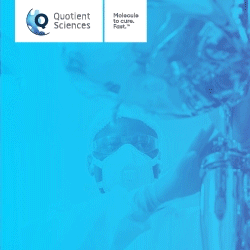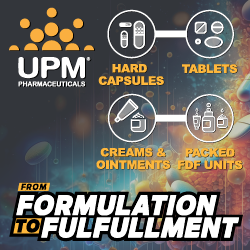Acer Therapeutics Enrolls First Patient in its Phase 2a Clinical Trial for Treatment of Moderate to Severe Vasomotor Symptoms Associated With Menopause
Acer Therapeutics Inc. recently announced the enrollment of the first patient in its Phase 2a randomized, double-blind, placebo-controlled, dose-ranging trial evaluating the efficacy, safety, and pharmacokinetics (PK) of ACER-801 (osanetant) at different doses, compared to placebo, for the treatment of moderate to severe Vasomotor Symptoms (VMS) associated with menopause.
The trial is intended to enroll approximately 56 post-menopausal women aged 40-65, who experience moderate to severe hot flashes. Subjects are to receive twice daily doses of either 50 mg, 100 mg, or 200 mg of ACER-801 or placebo (14 subjects per treatment arm) over a 14-day treatment period, followed by a 14-day safety follow-up assessment. Additional trial details will be available at ClinicalTrials.gov. Results from this trial could provide proof of concept data in post-menopausal women and could inform ACER-801 dosing and a development path forward in patients with induced Vasomotor Symptoms (iVMS).
“Vasomotor symptoms, either induced or as part of peri- and post-menopause, are a significant and debilitating burden on patients. We are excited to start evaluating the safety and efficacy of ACER-801 in this dose-ranging study in post-menopausal women with moderate to severe VMS. We believe this study marks an important first step in finding a meaningful treatment for patients suffering from iVMS,” said Adrian Quartel, MD, CMO of Acer. “We are looking forward to the results of this trial to inform us on the potential next steps in our development program of ACER-801.”
VMS are generally defined as hot flashes, flushing and night sweats that most often occur in women entering or in menopause. VMS can also be induced (iVMS) by anti-androgen and anti-estrogen cancer therapies and surgical procedures that can lead to treatment non-compliance. VMS are caused by low estrogen levels leading to increased stimulatory signaling of neurokinin B (NKB) on the KNDy neuron in the hypothalamus. A non-hormonal treatment to manage iVMS is needed as estrogen is contraindicated for the management of VMS in patients with hormone-positive tumors, including breast and prostate tumors.
ACER-801 (osanetant) is a novel, non-hormonal, neurokinin 3 receptor (NK3R) antagonist that could offer a potential treatment option with meaningful improvement of VMS for patients with iVMS by blocking the stimulatory signaling of NKB on the KNDy neurons. Direct human safety evidence is available from 23 completed Phase 1 and 2 studies in which approximately 400 healthy subjects and 820 patients were treated with osanetant for schizophrenia, depression, and other indications. Data from these studies indicated no major safety concerns after single-dose and repeat-dose administration. ACER-801 is orally bioavailable and readily crosses the blood-brain barrier. Acer believes that several disorders involving the hypothalamus-pituitary-gonadal axis could be investigated for potential benefit from treatment with an NK3R antagonist.
ACER-801 is an investigational product candidate which has not been approved by FDA or any other regulatory authority. There is no guarantee that this product candidate will receive regulatory authority approval in any territory or become commercially available for any indications.
Acer is a pharmaceutical company focused on the acquisition, development, and commercialization of therapies for serious rare and life-threatening diseases with significant unmet medical needs. Acer’s pipeline includes four programs: ACER-001 (sodium phenylbutyrate) for treatment of various inborn errors of metabolism, including urea cycle disorders (UCDs) and Maple Syrup Urine Disease (MSUD); ACER-801 (osanetant) for treatment of induced Vasomotor Symptoms (iVMS); EDSIVO (celiprolol) for treatment of vascular Ehlers-Danlos syndrome (vEDS) in patients with a confirmed type III collagen (COL3A1) mutation; and ACER-2820 (emetine), a host-directed therapy against a variety of infectious diseases, including COVID-19. Each of Acer’s product candidates is believed to present a comparatively de-risked profile, having one or more of a favorable safety profile, clinical proof-of-concept data, mechanistic differentiation and/or accelerated paths for development through specific programs and procedures established by the FDA. For more information, visit www.acertx.com.
Total Page Views: 1537












